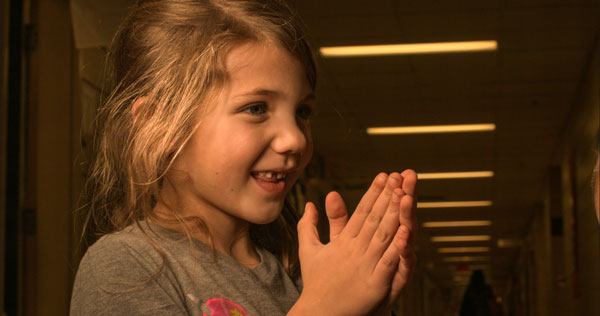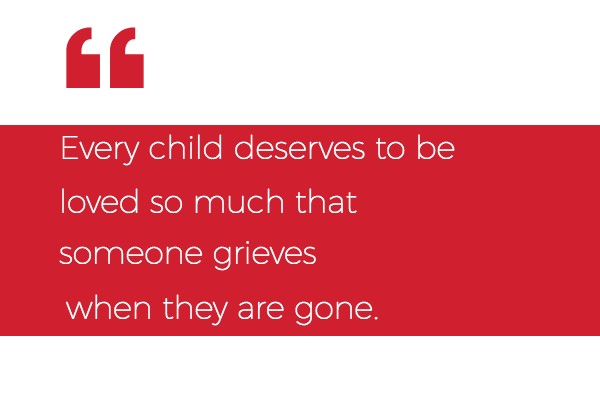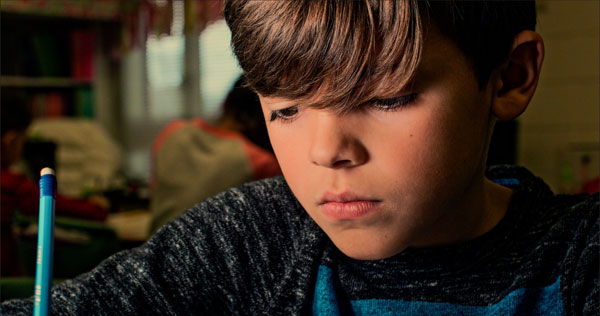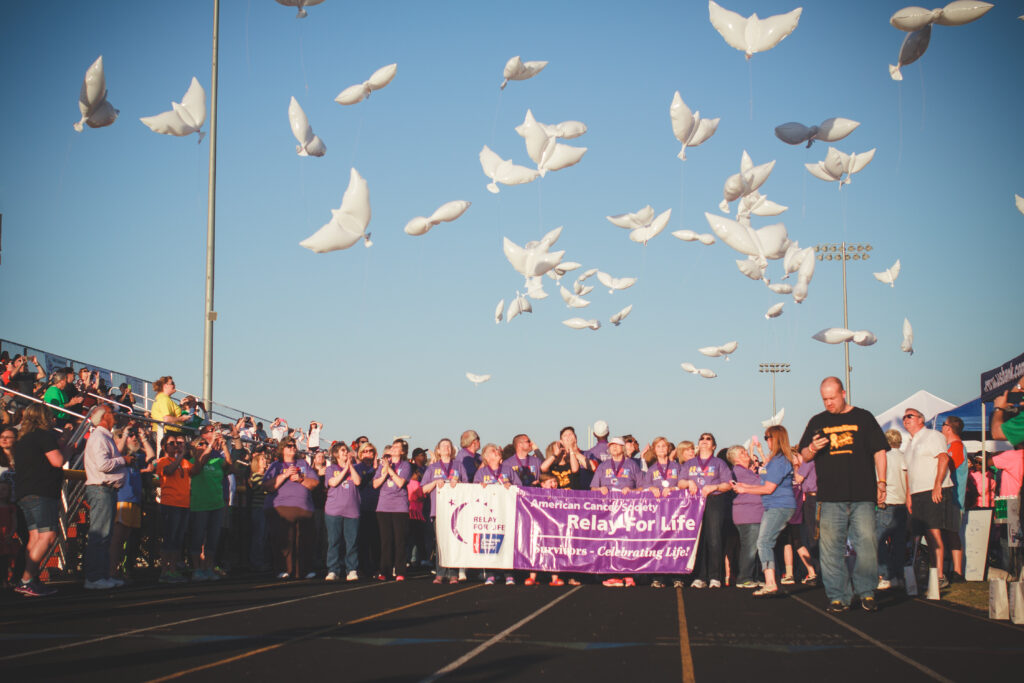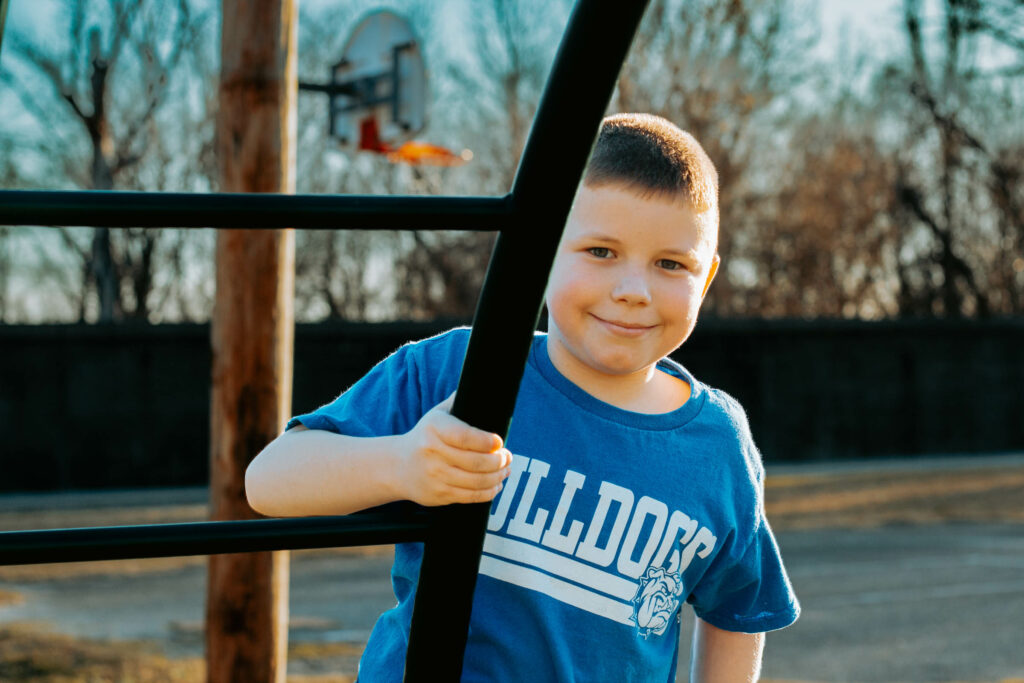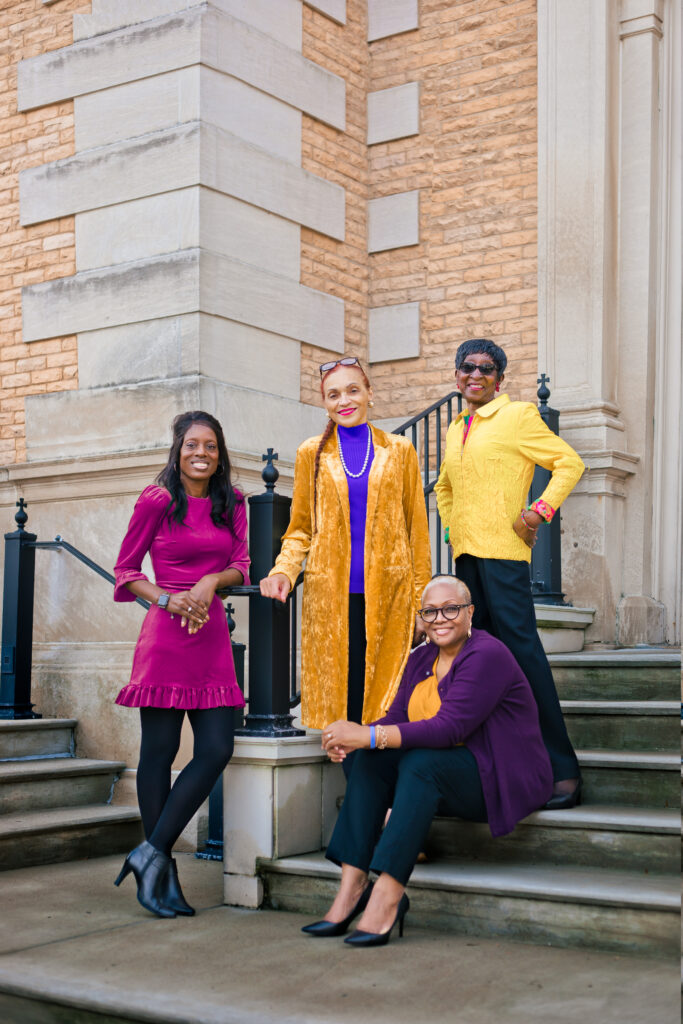Many believe it takes a special person to foster parent. Matt and Amberly Houser disagree. Amberly explains, “I am frequently told, ‘I could never do what you’re doing.’ This is said to me as if I’m more patient, organized, passionate, or loving. I’m not. That’s what I want people to realize about us. We are two normal people who love kids.”
The Housers began the foster care certification process in 2016 and have since loved ten foster children from the ages of two months old to fifteen years old, with stays ranging from as little as forty-eight hours up to seventeen months.
Both Matt and Amberly would describe themselves as normal, routine, flawed people. They deny the notion that they are special for opening their home to foster care.
Matt encourages, “There are so many great people in our community who help others in many ways. It doesn’t feel appropriate to use the word special. If people feel like foster care is something only for a select few special families, it will continue to remain a critical needs area. We hope to help normalize foster care for regular, routine families that have some extra love to give and can make a little room in their home for a child who needs to know what regular and routine look like.”
Amberly documents the family’s journey through Facebook, Instagram, and Youtube under the name Growing Up Houser. It is through this Amberly and Matt hope to document their journey and share their normal and flawed life in order to show others it doesn’t take special people for foster care, just those who are willing.
Growing Up Houser provides Amberly an outlet to be transparent about the joys and hardships of their life. She shares, “We are people with really sticky floors sometimes, a ton of laundry piled up, toys in the floor, and patience that runs thin. We get frustrated, lose our temper, and cry hot, angry tears of frustration just like anyone else. We want people to know they don’t have to be perfect parents to foster. If that were true, they would have never certified us.”
Matt and Amberly are not alone in their calling. They have three biological children who share the mission to love others. Matt shares, “Before we ever got a placement or started the classes, we talked with our bio kids about helping children in our community. They started praying for kids in our area in general. That led to the realization that foster care was our family calling.”
What began as prayers for other children in their community transformed into loving actions for the children welcomed into their home. Reading a book to their foster sibling, helping clean the house in preparation for a new child, and creating a welcome sign are just a few ways the Houser’s children live out the family’s mission and calling. Simple gestures turn into powerful moments to show love to someone who desperately needs it.
The tender moments of love and the vulnerability of sharing life causes some to shy away from the involvement of foster care. Some fear attachment and the feeling of loss after a child leaves the home. Amberly encourages deep love and attachment are exactly what children need. “Every child deserves to be loved so much that someone grieves when they are gone. That someone is broken over it. They deserve to feel that kind of love and attachment. Attachment for a child is paramount to them growing up to be adults who are more socially and emotionally stable and able to have loving relationships in their future that are healthy.”
In most cases, the goal in foster care is reunification with family. This takes time. Families meet goals set for them until they are in a position to reunite and care for their child. Foster homes stand in the gap and provide a place for children while their family makes preparations and changes as needed. There are challenges along the way, but the reward outweighs the struggles. Amberly shares what she finds most rewarding. “You stand with them during one of the most difficult parts of their life and watch them rebuild. You watch them learn new things. You watch them thrive. You watch them grow. You watch biological parents rebuild things that were broken. I think that’s the most rewarding part. We get a front row seat for restoration. Sometimes it’s with biological families and sometimes it’s not, but watching broken things slowly be restored before our eyes is the most rewarding.”
As for Matt, he agrees that watching the children grow and thrive brings joy. “I like to see the transformation that occurs when a child receives proper care over time. It’s amazing how resilient kids can be and when all their needs are met, they thrive and flourish. Many of the kids grow leaps and bounds in a short period of time. Sometimes it’s hard to see because we are so close to the situation, but after several months there are radical changes in the way kids look, feel, act, and speak. It really is amazing.”
Before the reward, there must be a willingness to take risk. A risk to experience the hard moments with children who need stability, patience, and love. To risk loving so deeply that there is a sense of loss when the child moves to the next part of their journey. To allow a young stranger into your home, knowing it is going to change your life as much as it will theirs.
However, if you are unable to become a foster home, Amberly encourages there are other ways to help. “If you can’t foster, then help someone who does. A friend of ours sent us diapers for a year because they wanted to help. Those acts of kindness help families know they aren’t doing this alone.”
For someone who is considering foster care certification, Amberly’s advice is simple. “Do it. There are 9,890 kids in foster care in Kentucky with 2,165 DCBS homes and 2,884 private foster homes. The only word that comes to mind when I hear that statistic is crisis. Foster homes are at capacity and there are more kids who need loving homes. Do it.”
Normal, routine, flawed – these words do not disqualify someone from becoming a foster parent. Matt, Amberly, and Growing Up Houser testify to this. Amberly encourages, “A parent who is trying their best to be a foster parent is far better than the child who has no one in their corner every single time.”
Do it. Be the one in a child’s corner. Cheer them on every single time.


